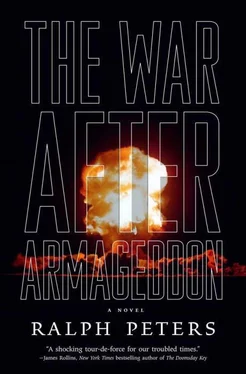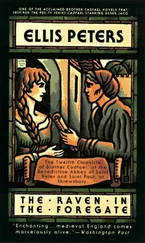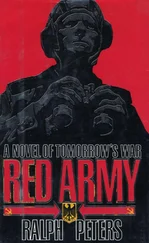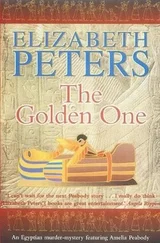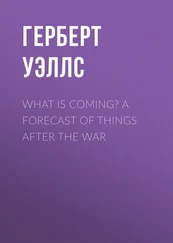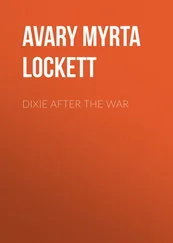General of the Order Montfort fared better. The hero of the first stage of the Holy War, he was chosen by President Gui to serve as his vice president and Generalissimo of the Order. Thus began a long and fruitful age, we are assured, with President Montfort succeeding President Gui when the latter’s final term ended—although our Great Prophet continued to assist President Montfort with guidance until the prophet’s soul soared upward. In a state of grace, our Christian Congress acceded to the public’s demand that the Constitution be amended to allow President Montfort to serve an unlimited number of terms in office, with future elections to be held in church, on Sunday, by a show of hands. It was only last April, during his fifteenth year as president in Christ, that the Lord called the Dear Prophet home. We are told that he passed over in perfect peace while reading Scripture. And yet, he did not reach the four score years and ten predicted for him.
Of course, the Army was disbanded, as was the Marine Corps, their missions assumed by the Military Order of the Brothers in Christ. The Air Force went next—believing to the end it would be spared—then the Navy received its new dispensation. By the end of the Holy War, we were a unified people in every respect. We praised God for it.
General Harris was right about one thing: It was difficult to kill a billion people. But it wasn’t impossible. After their cities had been destroyed, all of their images and records obliterated and the names of those cities removed from every map and book, we still had to launch the seven Great Hunts—one for each of the Seven Seals foretold—to finish the job. Even now, we hear tales of Deobandi and Naqshbandi fanatics praising Allah in the nuclear deserts.
There was, of course, the dispute with the Chinese Messiah over the radioactive fallout from our nuclear offerings. But our Chinese brothers and sisters were exhausted by their civil war. And Christians were not yet ready to fight Christians. The Chinese eventually aided us in the last several Great Hunts.
At home, we enjoyed an age of sacred glory, albeit with a spike in cancer rates. But we must not question God’s purposes.
Yet, as the years went by, I did begin to question. The soul is not steady, nor is it still. And I do not believe I have been alone in my swelling discontent. Indeed, I know I am not alone. There was the Rebellion of the Fallen Angels in the California Reserve five years ago, for one thing. A number of us who had learned to speak in whispers grew excited by the hope of regained freedoms. Then we learned that the rebels sought to bring our New Jerusalem into the fold of the Chinese Messiah, whose Christianity is sterner still than ours.
I do not overlook the good. We live in comfort and safety, and he who does not transgress need have no fear. But there are so many possible transgressions.
What brought about my private change of heart? It did not come suddenly. I am a cautious man. I believe my slow turnabout began with the Cleansing of the Books, when a Helpful Visit condemned my entire library. There was even a question, briefly, of a trial, until they realized I truly had been ignorant of the additions to the latest Christian Index. It had become difficult to acquire information, even when the information included the latest rules we were to obey.
Anyway, they burned my books. Moll Flanders and The Great Gatsby , Hamlet and Anna Karenina , even poor Clarissa in her innocence—they all went to the fire as startled martyrs. I miss them still.
Of course, I speak for my waning generation. The Blessed Teachers discourage personal reading by the young. The young do not seem to mind.
But there you have the heart of how it all went wrong, I think. I do not mean that we suddenly found our courage when they burned our books—the intellectual’s valor is a fairy tale. I mean something quite the opposite: We who cherished books believed that books could defend themselves. To the final cinder, we believed that the pen was mightier than the sword, for so we had been told. We were such fools.
Others among us trusted to the quality of our laws and failed to see that those laws had little power against men who valued only the law of God. Still others believed that their wealth would insulate them, but their wealth was confiscated for Christ. Some trusted their beauty, their talent, or family ties. All, all were mistaken. Only purity of faith mattered, and no one could be certain his faith would be judged pure.
And General Harris? What a hopeless fool the man was! For all his skill as a soldier, for all he had endured in bitter wars, he still believed in human goodness. He was as blind as Christ entering Jerusalem.
But Harris was no traitor. No matter what the permitted books may say.
I was the traitor. And now I have turned traitor again. To set down this book as penance.
I am Judas.
This is a novel, not a strategic forecast. That said, the plot does engage several of my enduring concerns, most notably the iniquity of fanat i cism in the name of any faith; the danger of nuclear proliferation among parties not dependably subject to deterrence; and our military’s reliance on electronics that may prove all too fragile in a major war. Warfare’s superficial manifestations change mightily, but its essence remains flesh and blood.
Readers with military experience know that I’ve taken liberties in three areas. First, I drastically limited the use of acronyms to avoid rendering the book opaque even to veterans. A typical staff officer can work a half-dozen acronyms into a simple declarative sentence, but effective storytelling can’t emulate a cryptogram. Second, I simplified the structure of a corps staff to concentrate on a few key players. I sought to capture the feel of a staff, based on personal experience, instead of bogging the plot down in the infernal complexity of line-and-block charts and niche responsibilities. Third, I accelerated the pace of events to keep things “high and tight.” Forgive me.
Finally, I owe great thanks to several friends who helped me avoid embarrassing mistakes. Given the controversial themes of this novel, I won’t embarrass them by using their names, but they know who they are: a cherished wine-drinking buddy who commanded a Marine regiment at war; another old friend and veteran U.S. Army Armor officer who went out of his way to prevent me from “throwing a track” on the page; and, not least, the magnificent Marine aviators out at Miramar who let me “crash” an F/A-18. The misfires in this novel are my own, but the steel on target owes much to these generous men.
ANDRETTI, Michael “Mike,” col o nel, G-3/Operations officer, III (US) Corps. The G-3 is responsible for converting the commander’s decisions into orders and translating the commander’s intentions into plans. The alpha dog among staff officers, the “Three” is responsible for keeping his grip on the battle at all times and alerting the commander to problems that require a decision on his part. A good G-3 makes his commander’s life easier, while a poor Three makes life hell for the rest of the staff.
BRATTY, Dilworth “Brats,” command sergeant major, 1st Battalion, 18th Infantry. A battalion command sergeant major is the unit’s senior enlisted soldier, responsible for looking after the troops and advising the commander on practical matters. A good CSM keeps both his troops and his commander out of trouble while terrorizing ju nior officers as required. A poor CSM drinks a great deal of coffee while complaining that the Army isn’t what it once was. Bratty is a model CSM.
Читать дальше
